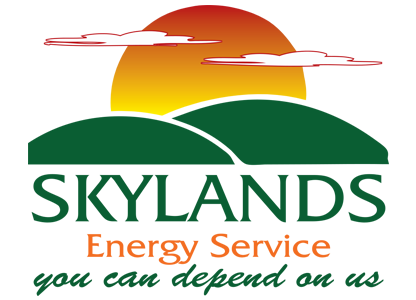
Standby generators are essential for ensuring continuous power during interruptions. Yet, even the best equipment occasionally encounters issues, such as starting difficulties. This article delves into ten typical causes behind the failure of standby generators to kick off. We cover various reasons why a generator won’t start, ranging from fuel dilemmas and battery challenges to defective parts and overlooked maintenance.
10 Reasons Your Standby Generator Won’t Start
Table of Contents
- 1 10 Reasons Your Standby Generator Won’t Start
- 1.1 1. Backup Generator Fuel-Related Issues
- 1.2 2. Whole-House Generator Battery Failure
- 1.3 3. Power Generator Control Panel Complications
- 1.4 4. Obstructed Generator Fuel Lines
- 1.5 5. Defective Whole-House Generator Spark Plugs
- 1.6 6. Standby Generator Air Filter Complications
- 1.7 7. Backup Generator Coolant Levels
- 1.8 8. Outdated Software
- 1.9 9. On-Demand Generator Starter Motor Issues
- 1.10 10. Neglected Whole-Home Generator Maintenance
- 2 Strategies For Avoiding Whole-House Generator Failures
- 3 In Summary
- 4 Call Skylands Energy Service For All Of Your Standby Generator Needs
Understanding why your standby generator might not be initiating can help quickly resolve the issue and ensure your power supply remains uninterrupted. Here are the primary factors:
1. Backup Generator Fuel-Related Issues
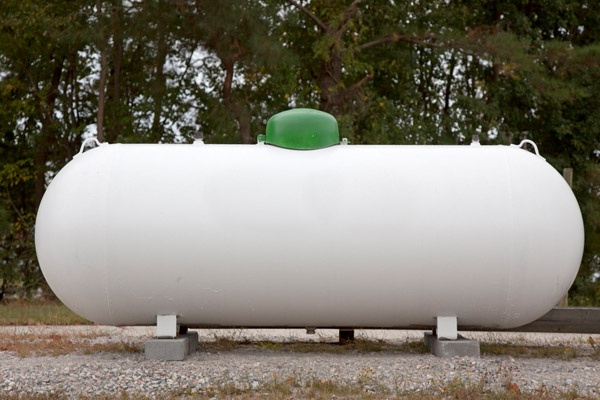
Fuel is the critical energy source for generators, powering the engine to generate electricity. Several common fuel-related problems can hinder the operation of standby generators, including:
- Insufficient Generator Fuel Levels: A generator failing to start or stop unexpectedly during use often stems from low fuel levels. To ensure a steady power supply, keeping the generator’s fuel tank adequately filled is crucial. Regular checks and timely refueling are essential, particularly when facing prolonged power disruptions.
- Compromised Fuel Quality: The performance of your generator is heavily influenced by the quality of the fuel. Using contaminated or substandard fuel can cause a range of engine issues, including blockages in fuel filters, problems with the carburetor, and potential engine damage. To maintain optimal generator function, always opt for clean, premium fuel that meets your generator model’s specifications, adhering to the manufacturer’s guidelines on fuel types and the use of additives.
- Fuel System Leaks: Damaged lines, loose connections, or deteriorated seals can cause fuel system leaks. These waste fuel and pose serious safety risks, including fire hazards. Regular inspections are crucial to promptly detect and fix any leaks, replace damaged components, and secure connections, ensuring your generator’s safe and efficient operation.
2. Whole-House Generator Battery Failure
The battery within a generator serves a crucial role, turning chemical energy into electrical energy via an electrochemical reaction. It operates independently as the primary power source, delivering the initial burst of energy necessary for the generator’s activation.
However, batteries can fail due to common reasons, such as age, extreme temperatures, and poor maintenance.
3. Power Generator Control Panel Complications
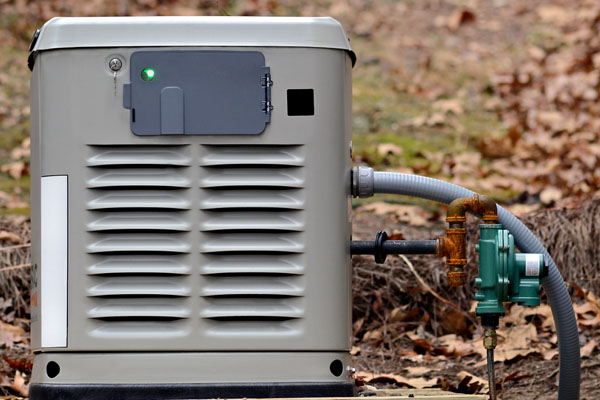
The control panel of a generator is the nerve center for its operation, offering a unified platform to oversee and manage its functions. This includes initiating or halting the generator, observing voltage, frequency, additional electrical metrics, and adjusting system preferences. Equipped with crucial safety mechanisms like circuit breakers and alert signals, the control panel functions as a crucial interface, facilitating the efficient and safe management of the generator in alignment with user requirements.
Potential issues with the control panel can arise from:
- Incorrect settings
- Misreading of indicators
- Inadequate control adjustments
4. Obstructed Generator Fuel Lines
Fuel lines are crucial in transporting fuel from the tank to the engine, ensuring a continuous and stable flow necessary for the engine’s combustion process. The efficiency and reliability of the generator rely heavily on the proper operation of these fuel lines, contributing to consistent performance and steady power output.
Blockages in fuel lines can result from sediment, debris, or the buildup of contaminants. These obstructions impede fuel flow, resulting in insufficient fuel reaching the engine. Consequently, the generator might suffer from decreased efficiency, engine misfires, power instability, or total engine shutdown.
5. Defective Whole-House Generator Spark Plugs
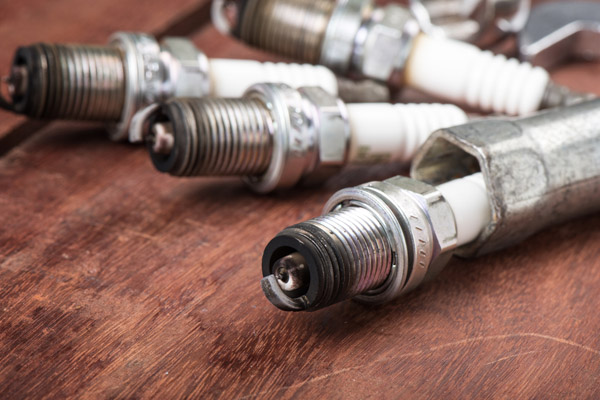
Spark plugs are vital for igniting the fuel-air mix in the engine cylinders, creating an electric spark that starts the combustion process. This process is essential for driving the engine, enabling it to produce mechanical power and subsequently generate electricity.
Common issues with spark plugs include fouling, wear, and incorrect electrode gaps. Fouling happens when deposits build up on the spark plug, weakening its spark generation capacity. Wear and corrosion can diminish spark strength. An inappropriate gap between the spark plug electrodes might also cause misfires or ignition failure.
6. Standby Generator Air Filter Complications
Air filters serve as a barrier against dirt, debris, and other contaminants, preventing them from entering the combustion chamber. Ensuring a clean air supply protects the engine from potential damage and helps maintain its efficiency.
Common air filter issues preventing generator startup include:
- Clogging: Dirt or debris blockage limits airflow to the engine.
- Dirt Accumulation: Excessive dirt reduces the filter’s ability to cleanse the air.
- Damage: Holes or tears in the filter may let unfiltered air into the engine.
These problems lead to a deficient air supply for combustion, complicating the generator’s starting process.
7. Backup Generator Coolant Levels
Coolant plays a crucial role in managing the engine’s temperature by absorbing the heat produced during combustion, thus preventing the engine from overheating. Maintaining proper coolant circulation is essential for optimal engine performance, safeguarding engine components from damage, and extending the generator’s operational lifespan.
Low or high coolant levels can disrupt generator operation. Too little coolant risks engine overheating, potentially damaging components, reducing performance, and accelerating wear, possibly leading to engine failure. Conversely, excessively high coolant levels may cause pressure buildup, risking coolant leaks.
8. Outdated Software
In contemporary generators, software is integral for controlling and managing operational aspects. It enables functionalities such as monitoring system metrics, adjusting power output, overseeing load distribution, and implementing safety measures.
The software further supports remote monitoring, diagnostics, and data analysis, improving efficiency, reliability, and operational convenience.
However, outdated software can lead to starting failures stemming from compatibility problems, glitches, or insufficient functionality. It might struggle to interface correctly with engine components or miss critical updates required for optimal performance.
9. On-Demand Generator Starter Motor Issues
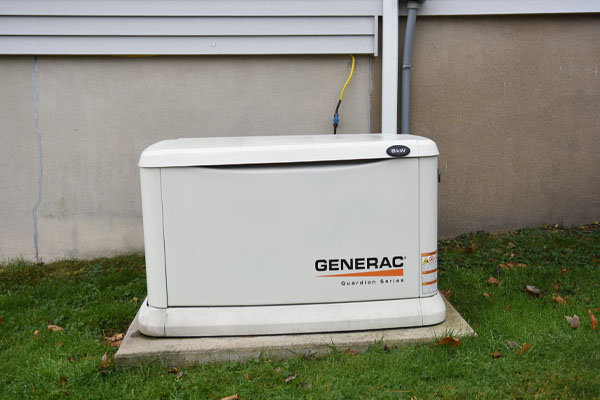
The starter motor is essential for beginning the engine’s combustion process. It draws electric power from the battery to rapidly engage and spin the flywheel. This action generates the momentum needed for the engine to activate, allowing the generator to produce electrical power.
Signs of starter motor failure include:
- Clicking sounds upon attempting to start
- Grinding noise
- Lack of response upon turning the ignition
Starter motor failure can be attributed to worn-out brushes, solenoid problems, electrical issues, or mechanical breakdowns. Factors like wear and tear, inadequate maintenance, and issues within the electrical system may also play a role.
10. Neglected Whole-Home Generator Maintenance
Consistent maintenance is vital in maintaining a generator’s reliability and efficiency. It allows for early detection and correction of issues, minimizes breakdown risks when needed most, prolongs the generator’s lifespan, enhances fuel efficiency, and safeguards both the generator and its operator.
Neglecting maintenance can cause generator start failures by letting issues build up and deteriorate over time. Overlooked components such as spark plugs, fuel filters, or batteries may degrade, leading to inefficient combustion or an insufficient power supply.
Strategies For Avoiding Whole-House Generator Failures

Early detection of issues is crucial for preventing generator failures. Employ the following strategies to troubleshoot and avoid such problems:
- Perform routine checks on fuel and air filters, monitor fluid levels, and test the battery’s condition. Clean or replace parts as necessary.
- Keep the generator in a dry, well-ventilated area to prevent overheating and moisture-related issues.
- Avoid overloading the generator; ensure loads are balanced to prevent strain on the system.
- Follow the manufacturer’s recommended maintenance schedule and procedures, and opt for professional servicing to keep the generator in optimal condition.
In Summary
Numerous factors can prevent a standby generator from starting, but consistent maintenance and correct operation are key to ensuring its reliability. By committing to a regular maintenance routine, conducting thorough inspections, and swiftly resolving any issues, you can avert many potential problems.
This approach ensures your generator remains prepared to supply power whenever necessary. Ultimately, a diligently maintained generator is a dependable backup power solution, providing reassurance during outages or emergencies.
Call Skylands Energy Service For All Of Your Standby Generator Needs
Skylands Energy Service shines as a premier provider of generator services across Central New Jersey. Offering everything from whole-house generator installations to meticulous repair, maintenance, and replacement, our services are designed to keep your power running without interruption. Our team consists of elite service contractors, each expertly trained in cutting-edge generator techniques, ensuring you receive top-tier support for all your generator needs.
For comprehensive solutions and expert advice on ensuring your home’s energy security, reach out to Skylands Energy Service. Don’t miss the opportunity to benefit from our free, in-home estimates.
With Skylands Energy Service, you’re in the hands of industry professionals dedicated to answering your questions and providing the peace of mind you deserve. Call us today to discover the Skylands difference.
Contact us now at (908) 707-1776 to find out more! Click here to view our service area.

Related Articles:

